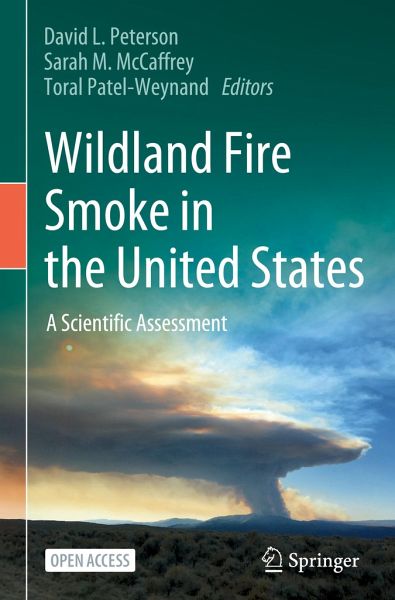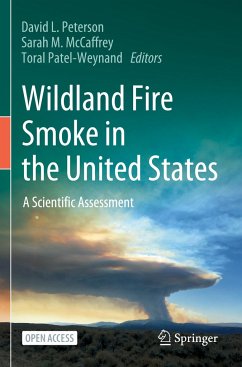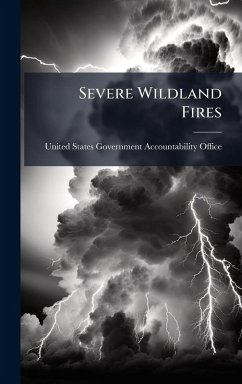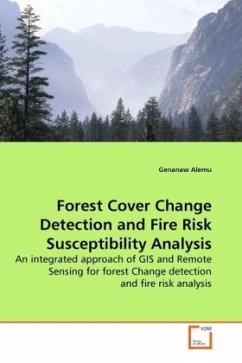
Wildland Fire Smoke in the United States
A Scientific Assessment
Herausgegeben: Peterson, David L.; McCaffrey, Sarah M.; Patel-Weynand, Toral
Versandkostenfrei!
Versandfertig in 6-10 Tagen
38,99 €
inkl. MwSt.

PAYBACK Punkte
19 °P sammeln!
This open access book synthesizes current information on wildland fire smoke in the United States, providing a scientific foundation for addressing the production of smoke from wildland fires. This will be increasingly critical as smoke exposure and degraded air quality are expected to increase in extent and severity in a warmer climate. Accurate smoke information is a foundation for helping individuals and communities to effectively mitigate potential smoke impacts from wildfires and prescribed fires. The book documents our current understanding of smoke science for (1) primary physical, chem...
This open access book synthesizes current information on wildland fire smoke in the United States, providing a scientific foundation for addressing the production of smoke from wildland fires. This will be increasingly critical as smoke exposure and degraded air quality are expected to increase in extent and severity in a warmer climate. Accurate smoke information is a foundation for helping individuals and communities to effectively mitigate potential smoke impacts from wildfires and prescribed fires. The book documents our current understanding of smoke science for (1) primary physical, chemical, and biological issues related to wildfire and prescribed fire, (2) key social issues, including human health and economic impacts, and (3) current and anticipated management and regulatory issues. Each chapter provides a summary of priorities for future research that provide a roadmap for developing scientific information that can improve smoke and fire management over thenext decade.












